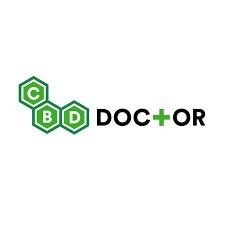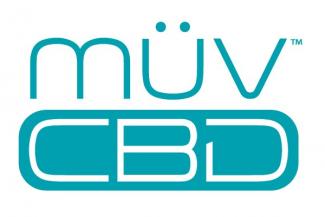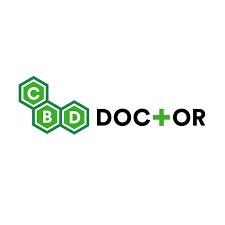A Beginner’s Guide to CBD
While it may seem like a popular buzzword these days, CBD has long been a historical staple, with references to its many uses dating back to Central Asia in 500 B.C. Today, palatable forms of CBD include oils, tinctures, ingestibles, and capsules, while topical forms, such as creams and roll-ons, have shown to be effective alternatives for contact relief.
At CBD Doctor, we believe in giving you the most accurate information to help demystify CBD and shed light on any potentially confusing topics you may encounter on your new CBD journey.
Read on to explore some of the unfamiliar concepts and questions surrounding CBD.
What is CBD?
Let’s dive into the main feature of our website and blog post: CBD, or cannabidiol, a popular natural remedy that has been used throughout history to assist with many common ailments.
You may hear about “weed”, which refers to products made from cannabis plants containing high doses of tetrahydrocannabinol (THC), the main psychoactive cannabinoid which causes the sensation of getting “high” that’s often associated with marijuana. However, unlike THC, CBD is not psychoactive. It is extracted from hemp – cannabis plants bred to contain very low if any traces of THC – so you can see why CBD becomes quite an appealing option for anyone looking for the benefits of CBD without the mind-altering effects of marijuana or other pharmaceutical drugs.
Navigating the CBD Spectrums
Your new CBD oil says the words “Full Spectrum” on the label, but another brand features “CBD Isolate.” How can you tell which one will suit you best? When considering which products to purchase for your new CBD regimen, it is important to consider the ingredient list in order to make a responsible decision on what type of CBD will work best for your lifestyle. There are some potentially confusing but key differences between the main types of CBD, so we have defined them briefly for you below.
Full Spectrum CBD
When product labels use the term full spectrum CBD, they mean the extracted formula containing – as its name suggests – all of the natural elements and terpenes found in industrial hemp plants. Studies show that full spectrum offers the complete benefits of CBD, more so than broad spectrum or CBD isolate, as it gives that complete or full dose of all the organic cannabinoids and terpenes present in the plant.
Full spectrum CBD produces no psychoactive effects, as it contains trace amounts of less than 0.3 percent THC, falling below the legal limit. Full spectrum is also associated with the entourage effect in that it offers the complete benefits of all the cannabinoids and terpenes from the source plant, working together to deliver maximum effects to the user.
Broad Spectrum CBD
A newer option for users, broad spectrum CBD, is produced when the CBD substance is extracted, maintaining all of the benefits of full spectrum CBD but removing any trace amounts of THC.
If you’re looking to add CBD to your wellness regimen while avoiding any interaction with THC – or strict THC laws in your state – you’ll find that broad spectrum is the ideal choice. Broad spectrum CBD provides you with a worry-free solution to enjoying the naturally soothing benefits of CBD oils.
CBD Isolate
CBD isolate formula contains pure, isolated CBD without any of the other natural compounds present in full and broad spectrum CBD. All of the plant’s compounds are extracted through a process that removes its cannabinoids, flavonoids, and terpenes.
The purest and most potent form of CBD, it often contains more than 90 percent cannabidiol and poses no risk of psychoactive effects. Isolate is both tasteless and odorless, making it the perfect solution for those wanting to add CBD to their favorite foods or beverages. Of course, since this is a concentrated product, free of the full elements of the source plant, it is unable to deliver the entourage effect present in full or broad spectrum.
The Science Behind CBD
We know that the hype around CBD has spread its popularity so much, that it is widely available all over the internet and in retailers in the United States. We, at CBD Doctor, believe that understanding the science behind CBD is important to helping you make more informed customer decisions. Most people don’t understand how CBD may work with the Endocannabinoid System to help regulate body function, even anecdotally providing relief through its analgesic and anti-inflammatory properties.
CBD and the Endocannabinoid System
Let’s break down how the body works with CBD.
Endocannabinoid (ECS) receptors are found in the skin, muscle, and bone throughout the central and peripheral nervous system, immune system, and even the reproductive organs.
The purpose of the ECS is to create a total balance, known as homeostasis, where the various body elements work by depending upon one another to function. It plays a role in many vital processes like appetite and pain perception. CBD may work with the ECS to help signal and regulate the proper balance in bodily functions.
Certain chemical compounds, or cannabinoids, attach to ECS receptors and behave like chemical messengers to control physiological signaling. When they are produced by the body, they are called endocannabinoids; when they are created by plants, they are called phytocannabinoids; and when they are synthesized in a lab, they are called synthetic cannabinoids.
Exploring the Differences between CBD and THC
CBD and THC are both active cannabinoids present in the plant Cannabis sativa, but their effects are different. Some products with CBD may contain only trace, non-psychoactive levels below 0.3 percent THC, the cannabinoid associated with the psychoactive high. As such, CBD provides a convenient alternative for people wishing to avoid products with high levels of THC.
Hemp is a term used to classify varieties of cannabis that contain 0.3 percent or less THC content. This has generally been used to describe non-intoxicating cannabis harvested for the industrial use of its derived products, including food, rope, low-THC CBD, clothing, paper, and housing materials. Marijuana is the term used to classify varieties of cannabis that contain more than 0.3 percent THC and can induce psychoactive effects on the user.
CBD Does NOT Get You “High”
THC and CBD are two different cannabinoids present in the plant. When extracted from the plant in full spectrum form, CBD can contain trace amounts of THC — less than 0.3 percent — making it too little an amount for anyone (or their pets) to feel any psychoactive effects when using it. Remember, although CBD oil mainly comes from hemp, CBD oil is not the same as marijuana. See our CBD 101 page for further clarification.
Benefits of CBD
The US Food and Drug Administration currently prohibits all manufacturers of CBD products from making any claims about their ability to treat specific health conditions. So, although we would love to rave about the benefits of our products, we must abide by the FDA restrictions. Health claims are only permitted where approved by the FDA and based on accepted clinical trials. The lengthy clinical trial period for CBD is still in progress, but we encourage you to look online for more information and the numerous testimonials available on CBD use. Check back on our website for future posts featuring actual CBD consumers sharing their personal experiences using our CBD products.
Keep Quality in Mind
When considering where to purchase your CBD products, it is so important to be mindful of their ingredients and inherent value. We recommend that you always buy from companies that use third-party testing to ensure the potency and purity of their products. That is precisely why we created CBD Doctor.
We Stand Behind Our Products
With all of the potential confusion about CBD products on the market, our team at CBD Doctor felt that it was incredibly important to create a curated online and in-person collection of CBD solutions that have worked for our own patients. We believe that by providing you with easy access to stores of valuable information, effective products, and a growing community dedicated to the pursuit of wellness, that we are doing our part to make the world a little bit better. We hope you can find CBD solutions that work for you.
Our CBD Doctor blog features additional articles to guide your CBD journey, including features on “Which CBD Products Are Right for Me?”and “What Can CBD Do for Your Skin?”

























